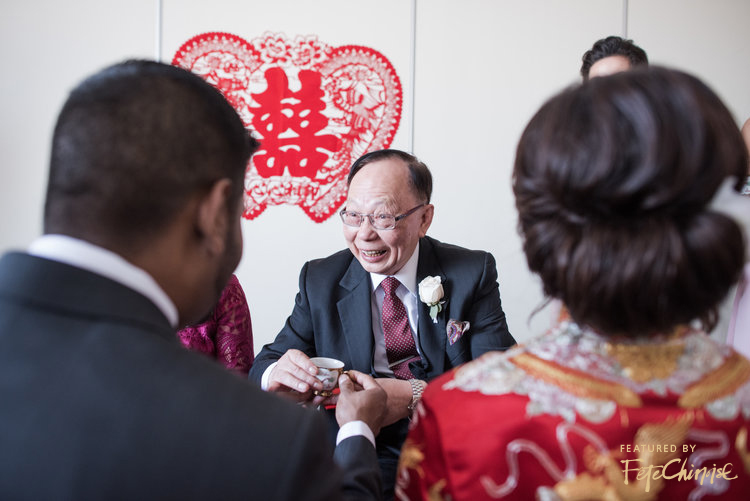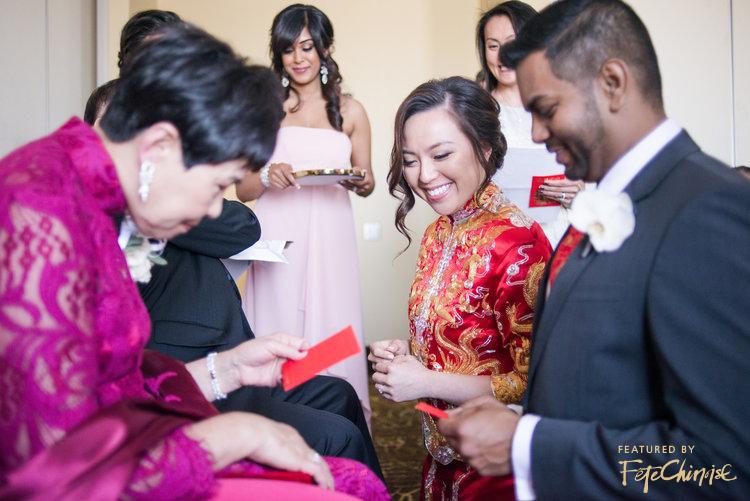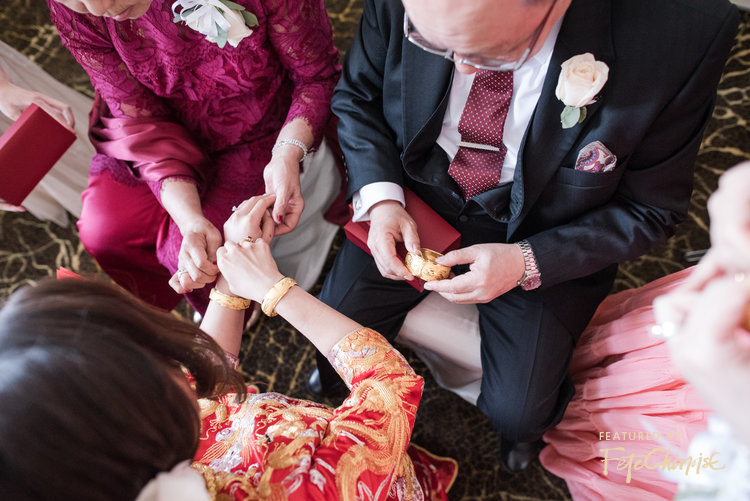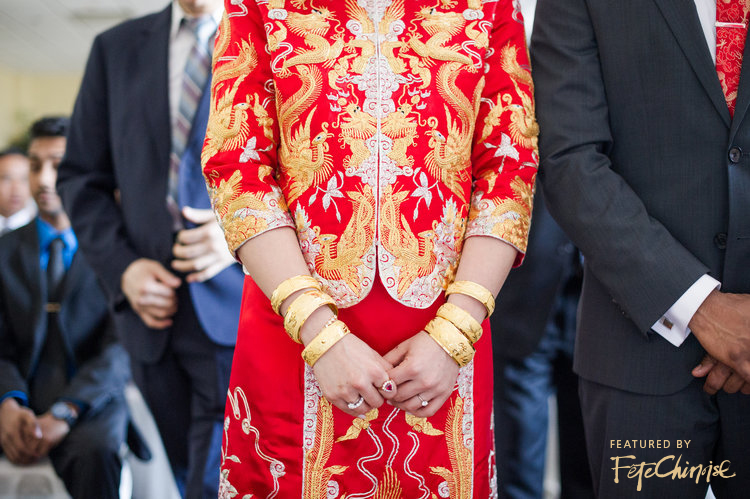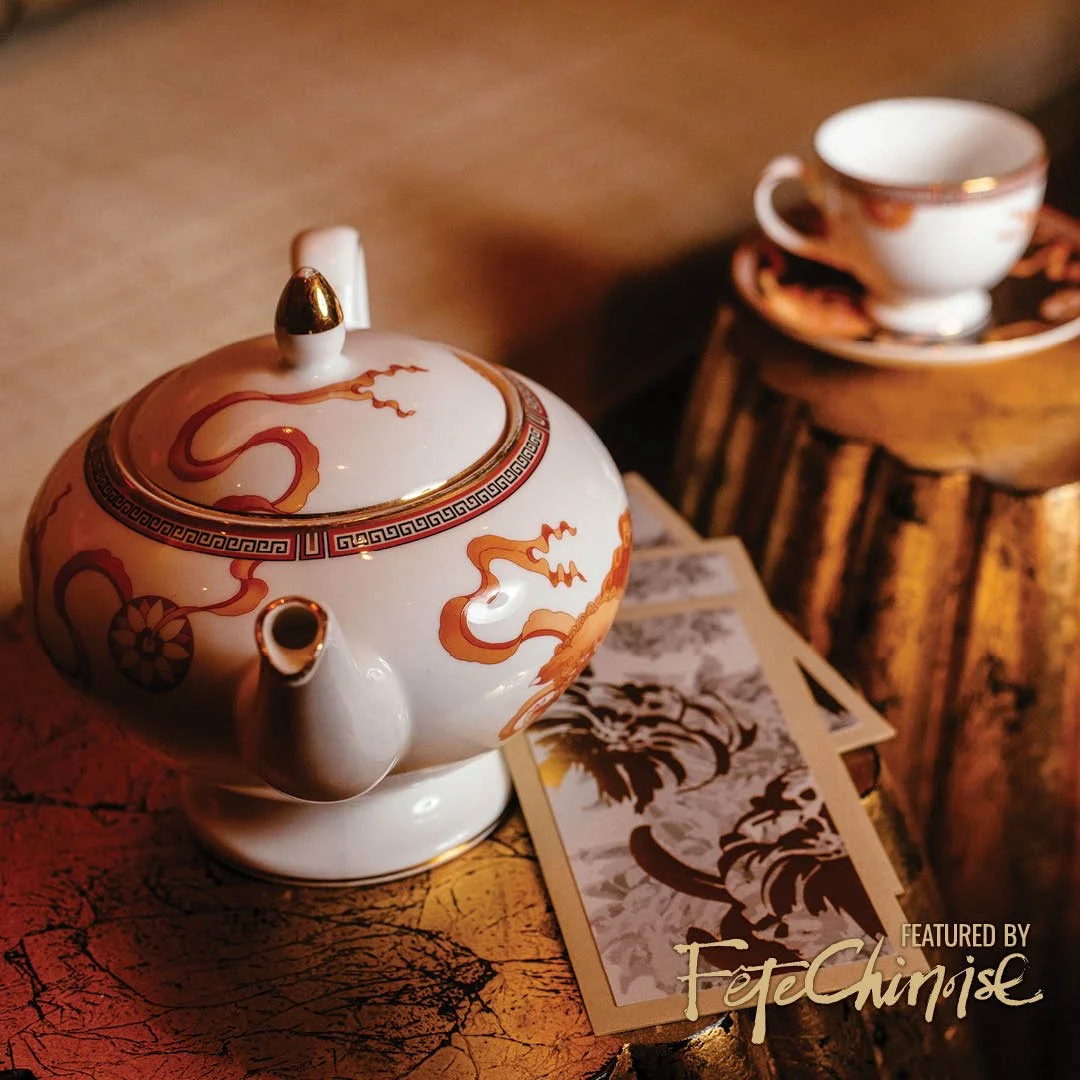The Tea Ceremony: Explained
By Nellie Kwok
Photos by Gee Hae Jeong
The tea ceremony is an important tradition at Chinese weddings. The significance of this time-honoured practice is deeply rooted in the fundamental values of Chinese culture, which are personal cultivation and respect. A mainstay in Chinese literature and art, I regard tea as the national beverage in China. Tea influenced the development of Chinese culture as drinking tea demonstrated personal morality, education, principle, and social status. The art of tea appreciation has historically been a symbol of sophistication and prestige within the Chinese society. Subsequently, the practice of serving tea progressively became an integral part of Chinese culture. Serving tea became a sign of respect. Even the most modest households in China would have the basic necessities for making a hot cup of tea. It is customary to offer a cup of tea to visitors and considered impolite if you do not. A younger person can show respect to elders by serving them tea. It becomes especially meaningful during special occasions and celebrations.
In Chinese weddings, the tea ceremony is the defining occasion on which two families are formally introduced to one another and the bride and groom show their gratitude and respect for their parents and elder relatives. For Chinese families, a wedding is not complete without a tea ceremony.
Traditionally, the tea ceremony is held on the morning of the wedding day. Once the groom and his groomsmen successfully complete the wedding door games and enter the bride’s family home, the tea ceremony is conducted for the bride’s family members. The entire wedding party will then go to the groom’s family home, where the tea ceremony is arranged for his relatives. Nowadays, it is common for Chinese weddings to hold the tea ceremony later in the afternoon for both sides of the family, which will see both the bride’s and groom’s relatives meet and get served tea at the reception venue.
“The tea itself carries symbolic meaning. ”
The tea itself carries symbolic meaning. Popular choices for tea leaves are Pu’erh tea produced in the Yunnan province, and Tieguanyin Oolong tea produced in the Fujian province. The tea is sweetened with whole red dates, longan fruits, and lotus seeds to symbolize sweetness within the marriage and harmony with the in-laws. These staple ingredients also carry blessings for the bride and groom to have a fruitful marriage. In Chinese wedding celebrations, everything must come in pairs to reflect double happiness — each cup will contain two of each ingredient used. Each family member is also served two cups of tea; one cup from the bride, and one cup from the groom.
The order in which the tea is served is also vital, as it is a reflection of respect towards seniority within the family. The etiquette varies within the Chinese culture depending on where you are from. It is wise for the bride and groom to discuss the order of tea service with both sides of the family to avoid any potential confusion or misunderstandings on the wedding day. Some families are accustomed to the bride’s family being served the tea first, while others think the tea ceremony should begin with the groom’s family.
To show respect and gratitude, the bride and groom will kneel in front of their parents and elder family members. The bride kneels on the left side and the groom kneels on the right side. The male relatives are seated across from the bride, and the female relatives in front of the groom. While serving the tea, the bride and groom hold the tea cups with both hands before their elders. After drinking the tea, gifts and red pockets containing lucky money are presented to the couple. Gold jewellery is also traditionally given to the bride during this time. It is customary for the bride and groom to wear the jewellery immediately as a sign of sincere appreciation.
Wedding trends will wax and wane. Traditions are timeless. For myself as a passionate event planner, culture is an exploration in virtue, meaning and lifestyle. There is quite a narrative to the tea ceremony in Chinese culture. Thank you Fête Chinoise for brilliantly harmonizing old Chinese traditions — as ancient as the tea ceremony - with modern weddings. There is now a clear connection between the old and the ever-evolving new. The challenge of synthesizing the aesthetics from such different cultures brings me unique joy as every thoughtful detail in this event has proven it is indeed possible.
Nellie Kwok is a Toronto-based wedding and event specialist. She is the Co-Founder of Momentus Event Design & Management Group. Her passion is creating joy and treasured memories for her clients through extraordinary celebrations.



